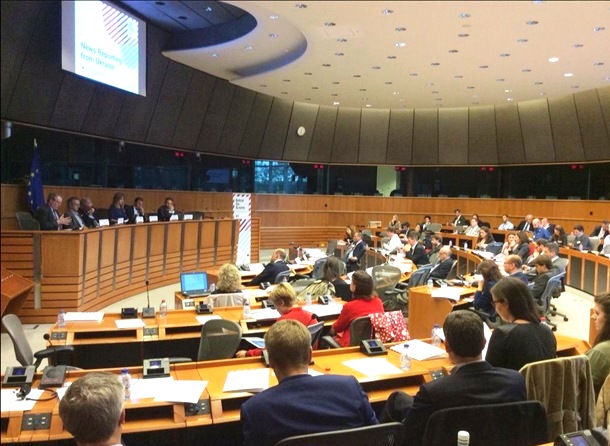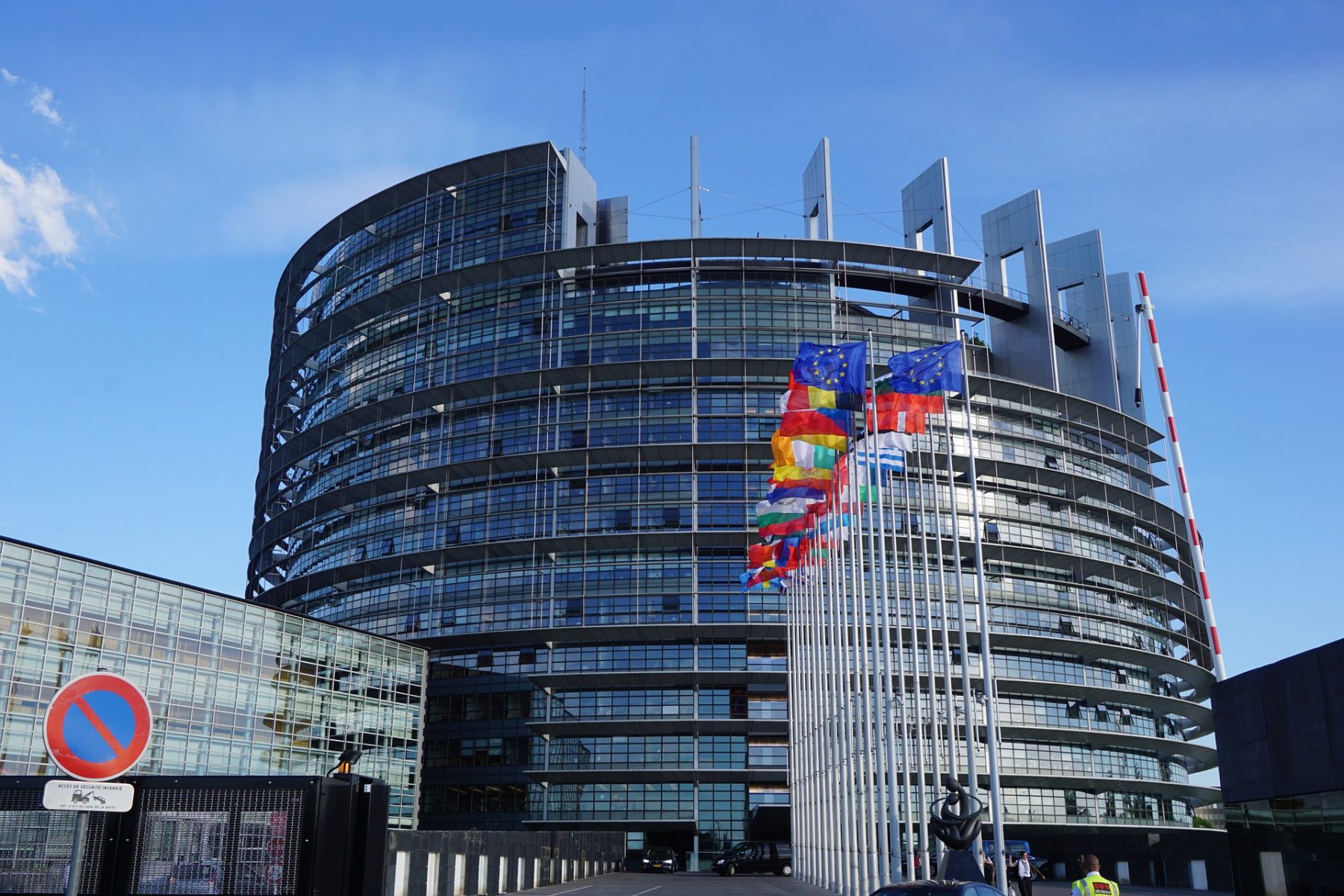Behind the Screens: MEPs and European commercial broadcasters discuss news reporting from Ukraine

Download the document
Over 100 MEPs, EU officials and broadcasters from around Europe gathered yesterday evening at the European Parliament to debate the challenges of news reporting from the Ukrainian conflict.
Hosting the event, Charles Tannock MEP reiterated the vital role of a free, competitive and independent media in reporting on fast-moving conflicts such as that in Ukraine and stressed the importance of credible, objective journalism to counter the mis information and propaganda which was being distributed. The European Parliament would always stand in support of free media and unbiased, professional journalism.
information and propaganda which was being distributed. The European Parliament would always stand in support of free media and unbiased, professional journalism.
Andrew Wilson from Sky News explained how television news had reinvented itself for the multi-screen era, offering consumers the ability to view news content on the device of their choice. The only way to cover a complex, multi-layered story like Ukraine was to be on site, although this involved significant expenses which could not be predicted in advance. One-off costs for a crew in Ukraine could run to €40,000 within five days. All journalists relied on their editors’ support to ensure that the financial expenditure was signed off by management.
Dirk Emmerich from NTV/RTL Television in Germany explained the dual role of 24-hour rolling news as well as the main daily bulletins with the latter broadcast serving the mass audience and the former a more dedicated news audience. These bulletins had an irreplaceable role played by the medium of television as the main source of news for Europeans. This level of viewing had not been achieved by chance but rather by building up, over the years, a level of viewers’ trust in television news which exceeded that in competing media.
Nikolai Doynov from Nova TV in Bulgaria stressed Bulgarians’ cultural, historical and linguistic ties to both Ukraine and Russia as well as very personal links – there are as many as 500,000 Bulgarians living in Ukraine. His viewers felt very involved with what is happening in Ukraine and Nikolai had found a different angle in presenting some stories from Ukraine by involving the Bulgarian expatriate community.
James Mates from ITV News underlined the logistical and financial commitment commercial media companies – including his own, which employs 470 journalists – are putting into news coverage. Despite the advances in technology and in citizen journalism, James stressed that there was no substitute for on-the-spot reporting – a lesson which had been learned, interestingly from journalists reporting from the Crimea, back in the nineteenth century.
The session also focussed on the need for more to be done by all parties to improve the safety of journalists.
Questions from the audience covered the rhythm of coverage and logistical issues around the MH17 flight disaster, the importance of dialogue in EU/Ukraine/Russia relations, the use of drones in journalism as well as debates around how journalists should react to increased competition, not all of which lived up to established ethical standards. The event finished with a lively exchange around the role of correspondents reporting from conflict zones, which had been changed radically by the first Gulf War. Speakers spoke from their personal experience and cautioned against glorifying the role of the ‘war correspondent’.
The event, moderated by EU correspondent Méabh McMahon, was the first in a series in which the Association of Commercial Television will demonstrate the role of commercial broadcasters in entertaining and informing European citizens.
Enclosed:
Here is the news… from European commercial television, Facts and figures about news services in Europe


